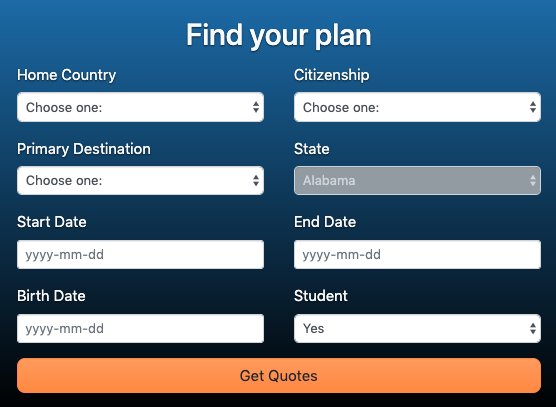There are many factors you should be considering when selecting the right travel health insurance plan. It can be a little bit of a daunting task to try and sift through all the different policies that are available, and so a little preparation can go a long way to finding that plan that will best fit your needs.
Before you begin the process, you should map out the main things that are important to you and what you think you need. This will help you understand and easily eliminate plans that might not meet those requirements.
The following are a list of questions that you can ask yourself, and the answers will help guide you:
This is a little generalized, but typically plans will fall into one of these categories. Travel insurance plans are the most common in the US market, but you should be mindful that these are really just trip cancellation plans with medical benefits added and in many instances are not adequate for longer term travel. Travel Health and Student Health plans are usually more comprehensive when it comes to their medical benefits, and are the preferred option if you are going to be spending a lot of time abroad.
This will be an important threshold question. If you are only planning on a short 2 or 3 week trip abroad, then trip cancellation (travel insurance) or travel health plans are ideal. However, if you will be abroad for longer term, you will want to consider the travel health plans and if you are a student, a student health insurance plan.
Some plans will not allow you to extend or renew coverage, or they may limit the total period of time you can be covered. While you may not think that is a problem, as you can just purchase another plan, you need to be mindful that these plans do not typically cover any existing medical conditions. So if you purchase one plan and have a medical condition, and that plan expires, the new plan you purchase will not continue to cover you!
You should spend some time to list out the things that are important to you. In most cases you will want to make sure your medical bills are covered (for a covered injury/illness), but what about things like medical evacuation, emergency reunion (bringing a family member to your bedside if you are hospitalized), trip interruption (sending you home if there was a death back home), lost luggage coverage, travel elay? These are all benefits you should consider, and if they are important to you then make sure they are part of your insurance plan.
Existing medical conditions are typically not covered by short term travel insurance, travel health or student health insurance plans. So, if you do have any existing medical conditions you will want to make sure you have an action plan to cover those expenses when abroad. What you will find on most plans is an acute onset benefit, that will cover your pre-existing conditions up to a certain level for an acute incident and on student health plans, they tend to cover existing medical conditions with an initial waiting period (typically after 6 or 12 months).
How much do you have to spend on your insurance plan? Obviously the more the better, as then you will get the best plan to suit your needs. However, there are ways to lower your overall cost of insurance and that is through the policy maximum and deductible options. Most plans will allow you to select a policy maximum, and so the lower this is the lower your cost of insurance will be. Same with your deductible, the higher you set your deductible, the lower your cost of insurance. You can play around with the options to try and get the price right within your budget!

Hopefully this has given you an initial idea on what to look out for when selecting the right insurance plan to fit your needs.
To get the process started, you can use the eStudent plan comparison tool.